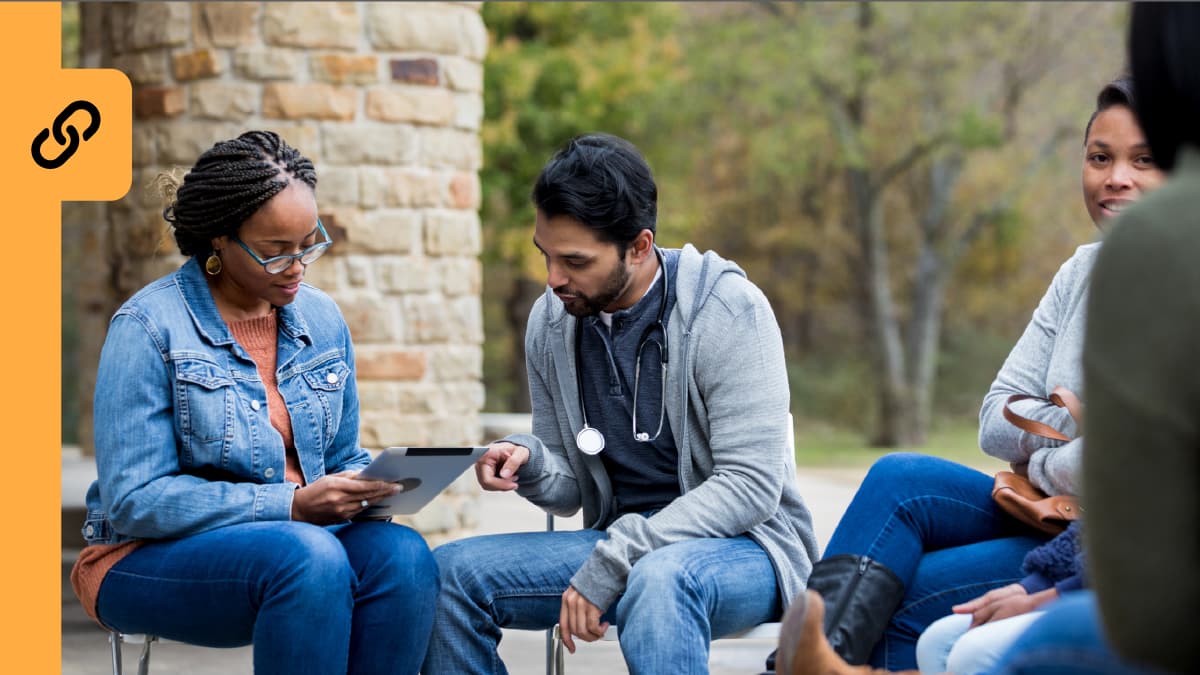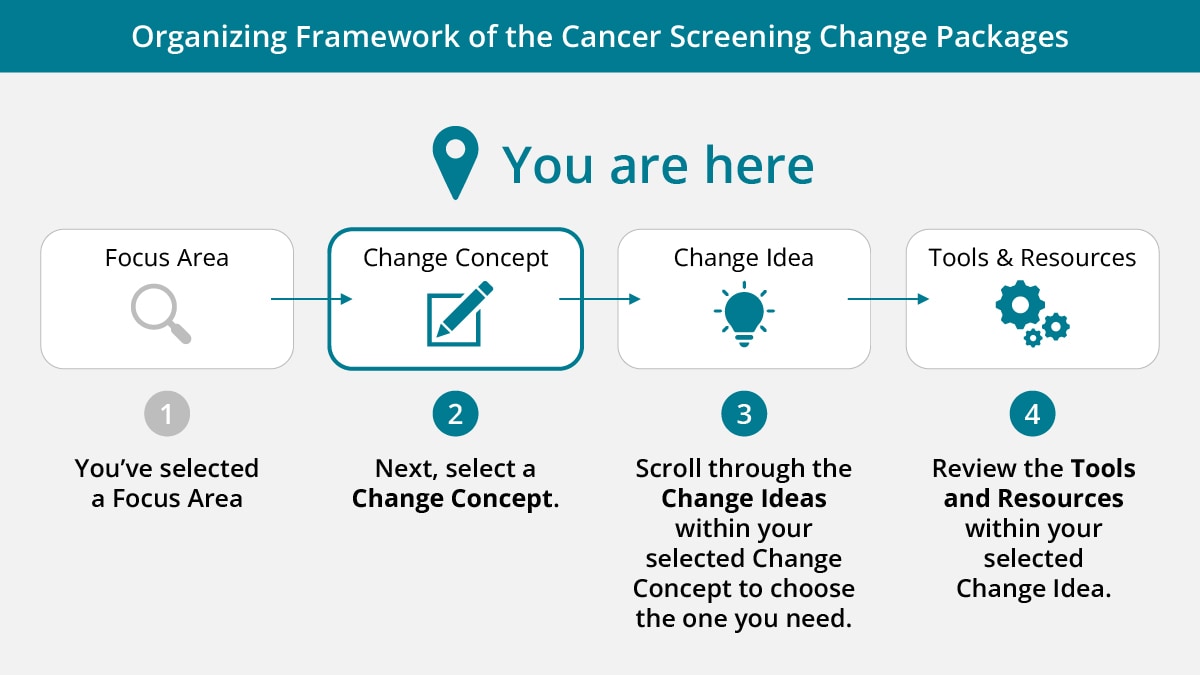What to know
The community-clinical linkages focus area includes tools and resources to engage community members and organizations to support screening efforts, reduce structural barriers to screening, and implement outreach and referral between community and clinical organizations.

Introduction
This page is part of the Breast Cancer Screening Change Package.

Change concepts are "general notions that are useful for developing more specific strategies for changing a process."1 Change ideas are evidence-based or practice-based "actionable, specific ideas or strategies."1 Each change idea is linked to tools and resources that can be used or adapted to improve cancer screening.
Note: See a list of acronyms used in this change package.
Select a change concept:
- Engage community members and organizations to support screening efforts.
- Engage community-based health professionals to refer or recommend individuals for screening.
- Reduce structural barriers to screening in the community.
- Change concept: Implement bi-directional outreach and referral systems for screening.
Change concept: Engage community members and organizations to support screening efforts.
- Evidence-Based Cancer Control Programs (EBCCP) — Friend to Friend, see Program Materials
- Evidence-Based Cancer Control Programs (EBCCP) — The Forsyth County Cancer Screening Project (FoCaS), see Program Materials: FoCaS Outreach Plan
- Evidence-Based Cancer Control Programs (EBCCP) — The Witness Project, see Program Materials
Change concept: Engage community-based health professionals to refer or recommend individuals for screening.
- President's Cancer Panel — Closing Gaps in Cancer Screening: Connecting People, Communities, and Systems to Improve Equity and Access, pages iii and 18–21
- The Community Guide — Cancer Screening: Interventions Engaging Community Health Workers – Breast Cancer
Change concept: Reduce structural barriers to screening in the community.
- GW Cancer Center — Guide for Patient Navigators: A Supplement to the Oncology Patient Navigator Training: The Fundamentals,A pages 7–9 and 64–69
- GW Cancer Center — Together, Equitable, Accessible, Meaningful (TEAM) Training [CEU course, free, registration required]
- Kobetz E, Menard J, Barton B, Pierre L, Diem J, Auguste PD, 2009 — Patnè en Aksyon: Addressing Cancer Disparities in Little Haiti Through Research and Social Action, see Rapid Assessment Survey Questions [full text available]
- President's Cancer Panel — Closing Gaps in Cancer Screening: Connecting People, Communities, and Systems to Improve Equity and Access, pages 19–20
- The Community Guide — Cancer Screening: Interventions Engaging Community Health Workers – Breast Cancer
- AHA — Social Determinants of Health Series: Transportation and the Role of Hospitals
- CMS — Non-Emergency Medical Transportation (NEMT)
- NIHB — Health Systems Improvement Toolkit: A Guide to Cancer Screenings in Indian Country, pages 25–26
- The Community Guide — Cancer Screening: Reducing Structural Barriers for Clients – Breast Cancer
- NIHB — Health Systems Improvement Toolkit: A Guide to Cancer Screenings in Indian Country, pages 25–26
- The Community Guide — Cancer Screening: Reducing Structural Barriers for Clients – Breast Cancer
- AICF — Mobile No-cost Breast Cancer Screening Program Overview
- Navajo Department of Health — Navajo Cancer Prevention Program [English and Navajo videos with some patient information included]
- U of L Health — Mammogram Screenings at Kentucky State Fair Could Save Your Life
- HHS — Preparing Patients for Telehealth Cancer Care
- President's Cancer Panel — Closing Gaps in Cancer Screening: Connecting People, Communities, and Systems to Improve Equity and Access, pages 3 and 17–19
- 211 — Healthcare ExpensesB
- Findhelp.org — FindHelpB [multiple languages]
Change concept: Implement bi-directional outreach and referral systems for screening.
- BMC and AVON Foundation for Women — The Boston Medical Center Patient Navigation Toolkit 1st ed, pages 21–29
- Centers for Disease Control and Prevention. Tobacco Cessation Change Package. US Department of Health and Human Services; 2019.
- Indicates a patient resource.
- This resource may contain some information that does not reflect the current US Preventive Services Task Force recommendations for breast cancer screening.
